Power and passion
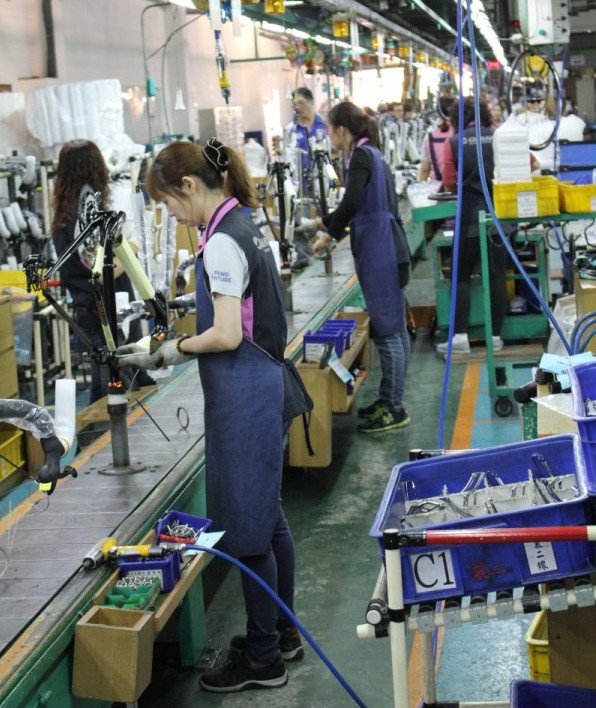
In the city of Taichung, Iain Treloar sees two very different sides of the Taiwanese bike industry.
As one of the largest manufacturers of quality bikes in the world, Taiwan is dotted with factories devoted to the production of frames and their components. These can be in somewhat out of the way locations—a small two-storey brake-part factory on the side of a highway, surrounded by rice paddies, was one of my favourite sightings—but a significant proportion of the Taiwanese bike industry is clustered around Taichung, on the west coast; as much as 90% of the island’s total bike production, and 80% of components, according to one report.
Taichung is a bustling metropolis, but like many Taiwanese cities sprawls out into industrialised sub-municipalities. It’s in these that the bulk of manufacturing occurs – understandably so, because a lot of these factories have a massive footprint.
Giant
- 2,000 employees (this facility only)
- 8-5.30, 2x10min breaks, 1 hr lunch.
- 11,125 dealers worldwide in 70 countries.
- $1,800,000,000 annual sales
- 6.3m bikes, largest in the world.
- Approx 14 hours to construct a carbon frameset, without any painting.
The biggest bike manufacturer in the world is the fittingly named Giant, and their high-end bikes are made in the Taichung facility. It’s a vast complex on the city’s semi-rural fringe, dwarfing the rest of the neighbourhood with multiple aeroplane hangar-sized buildings. Standing over all of them is the company’s nerve centre, a seven-storey tall cream office building with the company’s logo, four storeys high, written across the side. Walking from the visitor parking into the building, there’s an enormous foyer, with bikes like Marcel Kittel’s multi-stage winning Giant Propel on display. Just off the foyer is a lecture theatre, where visitors listen to a polished presentation from a couple of impressively-multilingual employees who do this as a full-time job. This is a big company, doing big business.
Outside of the main office building, the factory forecourt is busy with trucks coming and going. I’m led towards the carbon production facility first; outside the building are racks of unpainted frames sitting in wait for the next stage in their production. These aren’t always Giant bikes; the company builds under contract for numerous other famous brands from countries including the USA, Switzerland and Italy.
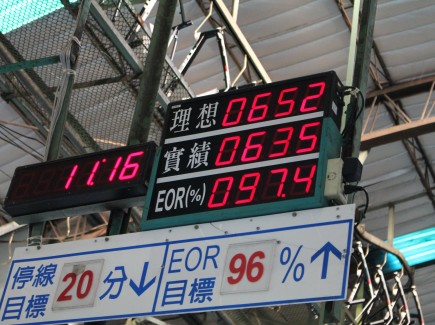
Giant’s build board, with target rates for each given shift.
Giant’s one of the world leaders in carbon production, and the only bike manufacturer to have their own carbon factory and weave their own products. Carbon production is a highly intensive process, frequently mischaracterised as machine driven. The reality is surprising; carbon frames aren’t woven by robots, but put together by human hands. Like a patchwork quilt, swatches are laid over each other, one by one.
There was plenty that I wasn’t allowed to photograph in the Giant factory, and my repeated requests to take pictures of various stages of the carbon production were politely rebuffed.
What I can tell you is that the scale of the facility was vast; hundreds of high-end frames, in various stages of assembly were passing through the factory in front of my eyes.
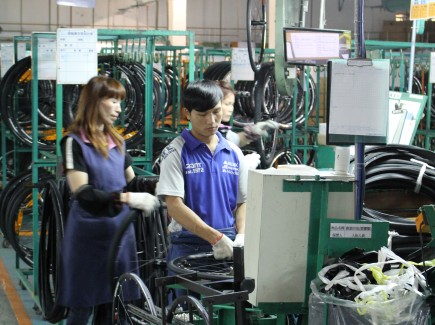
Wheelbuilding is a speedy process; laced and trued by hand, then mechanically inspected.
The carbon area of the factory is squeaky clean; the frames need to be millimeter perfect, after all, and it’s important to limit the risk of outside contamination. The company strives for perfection for the end consumer, putting a sample from each production batch through at least seven different test procedures (including X-ray). If any flaws are identified, production is halted while the problem is investigated, and the entire batch may be discarded.
One area that the camera was allowed was in the assembly line, which was a real eye opener. The astonishing efficiency with which the bikes were dressed in components made the efforts of even the best home-mechanic look rudimentary; my highlight was the team of women wrapping handlebar tape, racing through both sides in the virtual blink of an eye.
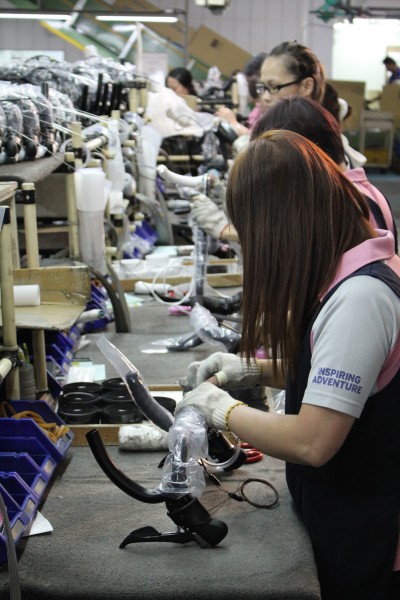
The bartape team.
Rikulau
- 8 staff
- 400-600 bikes per year
- <100 dealers worldwide in 7 countries
Down a side street of a side street in a satellite suburb of Taichung, there’s a small warehouse. The surroundings aren’t glamorous or impressive in scale, but inside lies one of Taiwan’s most progressive—and anomalous—bike companies.
The Taiwanese bike industry is typified by high-volume, high-turnover. Rikulau are the antithesis of this. In volume, it’s difficult to imagine a sharper contrast to companies like Giant; Rikulau produce between 400–700 bikes a year, the same that Giant churn through in about half an hour. Rikulau’s favoured materials aren’t carbon fibre or aluminium; their bread and butter is boutique materials like titanium and stainless steel, producing both standard and custom geometries. They’re one of relatively few frame builders using the fiendishly difficult to work 6al/4v titanium, and one of the true innovators in the emergence of stainless steel as a frame material, having developed with Reynolds the now popular 931 tubeset.
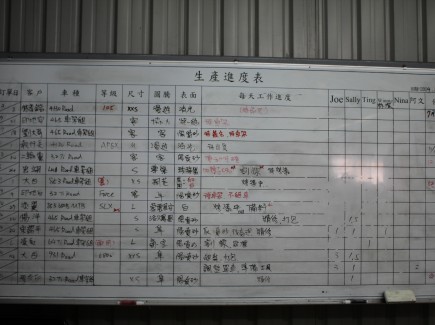
Rikulau’s progress board, with customer details, model, size and spec.
The bespoke frame building trade is undergoing something of a renaissance, with brands like Firefly, Baum, Independent Fabrication and Speedvagen, to name but a few, driving a renewed interest in boutique steel and titanium. Rikulau is rare as an Asian representative in a movement dominated by western builders, but there’s a pride in their origin that’s seldom seen in an industry that plasters Italian tricolours all over everything, and hides ‘Made in Taiwan’ stickers under the bottom bracket.
Rikulau’s elaborate frame finishes draw on Taiwanese indigenous culture; the brand’s name translates to ‘clouded leopard’, the spirit animal of the Rukai tribe, and graphics of various models reference Taiwanese fauna, flora and mythology. One such finish, pictured below, is the ‘May Snow’—a romanticised name for the Tung flowers which carpet the valleys of Taiwan during spring. Apart from the perfectly masked outlines of the flowers—which show the polished titanium underneath—the bike is half white, half black, playing off the two faces, good and evil, of traditional Taiwanese puppets. Another frame, exhaustively dot-painted, is a tribute to family members of company founder Chengnon Hsu, living in Australia.
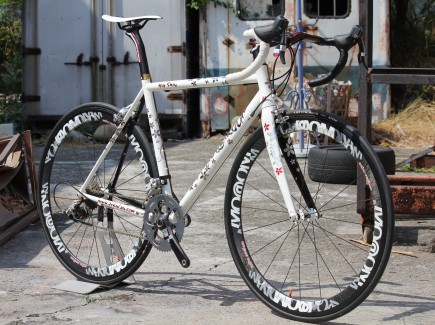
The immaculate, bipolar May Snow; half black, half white.
The company’s more subdued designs also have a beauty to them; I’ve been fortunate to review a couple of Rikulau bikes over the past couple of years, and I’m lucky enough to be the owner of one of their titanium models, in a very, very shiny polished finish. It rides like a dream, and is virtually guaranteed to be the only one in any bunch.
Rikulau is a quiet rebuttal to the dominant Western perception of the Asian bicycle industry, and a reminder that passion and a love of bikes transcends linguistic or cultural differences.
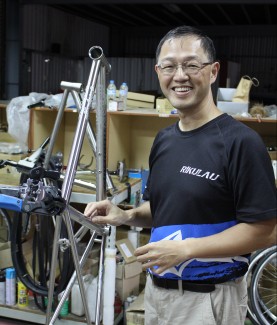
Company founder Chengnon Hsu on the warehouse floor.
All photography: Iain Treloar
Ride On content is editorially independent, but is supported financially by members of Bicycle Network. If you enjoy our articles and want to support the future publication of high-quality content, please consider helping out by becoming a member.



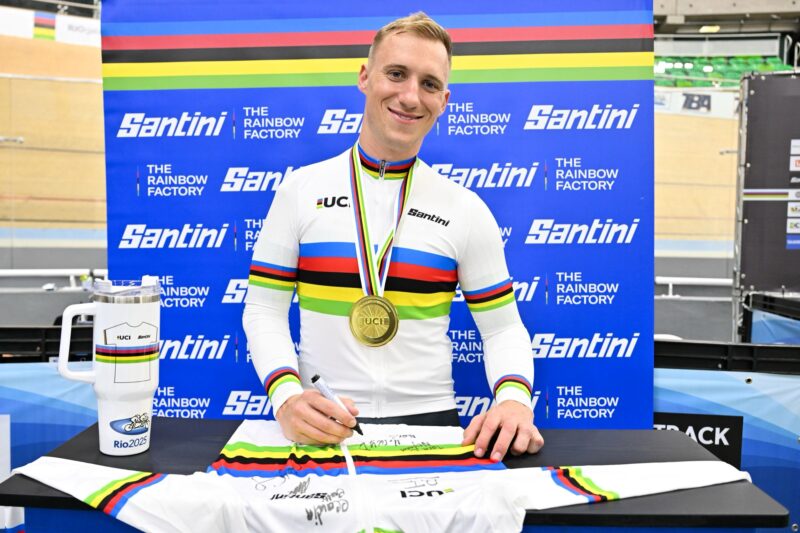
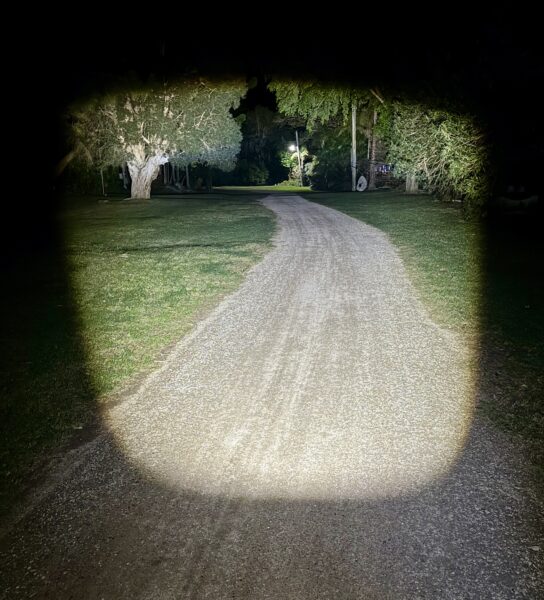

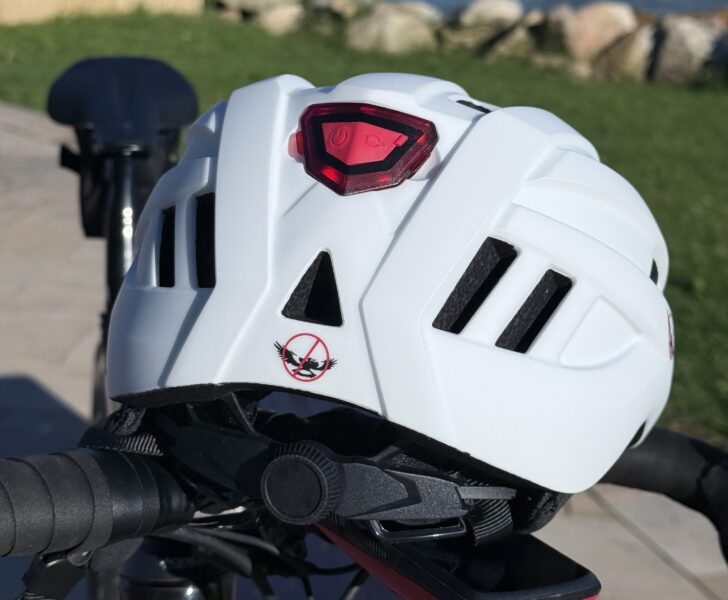
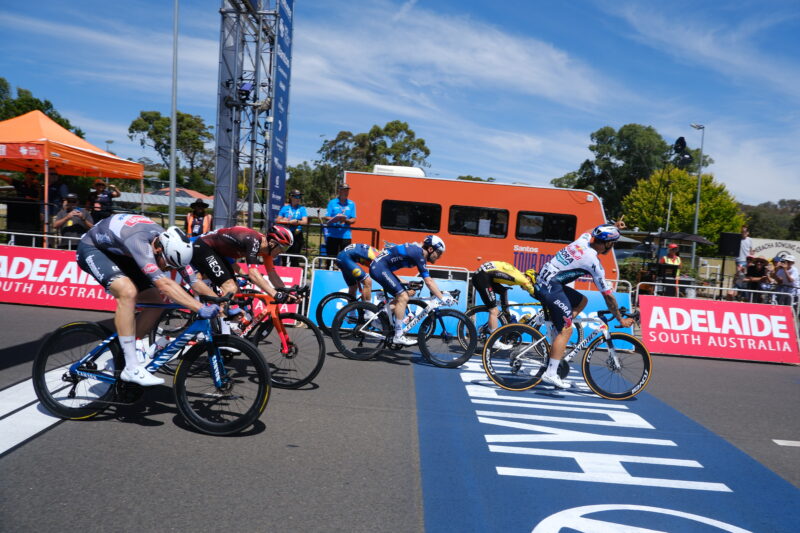
Found this article to be very interesting and informative. Would be great to see more of this, behind the scenes, kind of story. Well done.